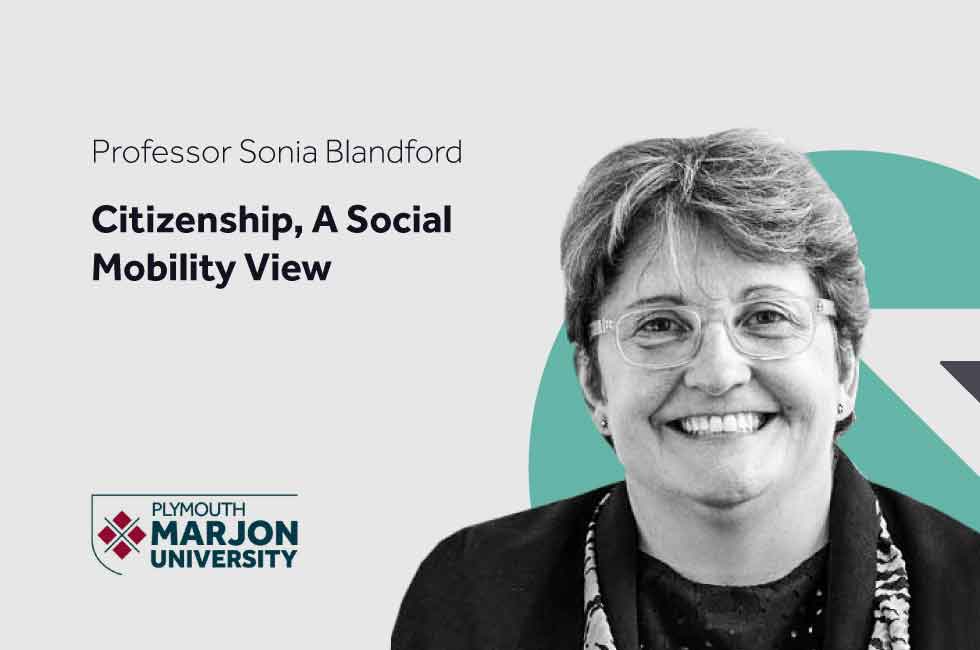As we move into the second year of our work at the Foundation for Education Development (FED) and following the launch of the FED National Education Consultation Report, we hosted a series of roundtable discussions seeking to answer the theme ‘Whatever Happened to… Citizenship and Community Engagement’.
We asked Professor Sonia Blandford, Professor of Social Mobility at Plymouth Marjon University, to share her input into this roundtable discussion. In this powerful thinkpiece, Sonia suggests that by improving the teaching of citizenship we would ‘produce students across the social divide who understand what it is to be valued as citizens within their communities.
Citizenship, A Social Mobility View
We live in a society that assumes that educators are committed to improving the outcomes of all children and young people regardless of their background, challenge, or need. In practice, this would mean that all students in our schools, colleges, and universities have access to a curriculum that would include Citizenship or related activity. Yet in the 20,000 primary and secondary schools in England, there are currently only 4,226 Citizenship teachers[1], the majority of whom are employed in the more affluent areas of the country[2]. Once again, vulnerable and disadvantaged students are not included, they do not experience a broad and balanced curriculum that would help them to understand and contribute to their world.
The contemporary UK space sees education communities and schools emerging from a pandemic, with many national and local directives plus significant funding emphasising Building Back Better[3] and Levelling Up[4]. Schools need to be supported in engaging with Citizenship if it is to fit with their many immediate priorities. By recognising the breadth and depth that Citizenship offers teachers also acknowledge how the subject enhances the relationship between their school and the community[5]. If delivered successfully, Citizenshipimproves a student’s understanding of their place in their world contributing to the successful academic and social progression of all our learners, and it will grow a more collaborative and community-based model of education.
Citizenship for all is a possibility if:
- all Initial teacher education programmes include Citizenship training, thus increasing the number of qualified Citizenship teachers in our schools.
- all teachers and support staff receive annual Citizenship continuing professional develop
- Citizenship is included in every Key Stage 1 to Key Stage 4 school curriculum
- Ofsted includes the school engagement with Citizenship in every inspection.
The above would produce students across the social divide who understand what it is to be valued as citizens within their communities, and how they can contribute positively to the world they inhabit. Citizenship trained educators would demonstrate commitment to all students, every lesson, every day, every week, every year. The alternative is continuing growth in the divide between rich and poor, further regression regarding social mobility, and the stalling of social and educational inclusion.
Appendix:
[1] Liz Moorse, CEO Association for Citizenship Education (2022) FED Space presentation
[2] James Weinberg, Lecturer in Political Behaviour, University of Sheffield (2022) FED Space presentation,
[3] Build Back Better: our plan for growth – GOV.UK (www.gov.uk)
[4] https://www.gov.uk/government/publications/levelling-up-the-united-kingdom
[5] Andrew Peterson, Professor of Character and Citizenship Education, University of Birmingham, FED Space Presentation



